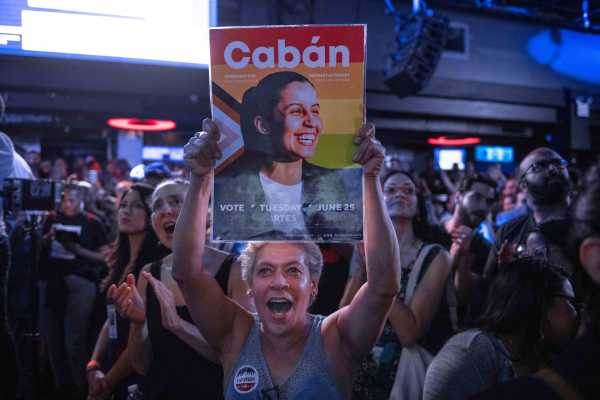
The Queens district attorney race originally looked like yet another example of a reformer prosecutor unexpectedly defeating the mainstream candidate — but it increasingly looks like the mainstream candidate may have won after all.
After a recount, Melinda Katz appears to be ahead in the Democratic primary for Queens district attorney, coming out just 60 votes (of more than 90,000) ahead of opponent Tiffany Cabán. A win in the primary is widely expected to be effectively a win in the general election in November, since Queens is heavily Democratic.
This may seem like a small local news story. But it’s not — Queens has more people than 15 states and Washington, DC, so the race is a huge deal to a lot of people. And this is the kind of story that really matters for criminal justice reform, because district attorneys and other prosecutors hold tremendous power over the systems that oversee all incarceration in the US.
Cabán has vowed to fight on in court. She hopes to get more than 100 affidavit ballots counted, which could be enough to turn the results.
But for now, Katz is ahead — a big disappointment for supporters of Cabán and a more aggressive approach to criminal justice reform.
Cabán ran on a very progressive platform, focused on racial justice and criminal justice reform. She promised to end cash bail; decriminalize drugs, sex work, subway turnstile jumping, and other crimes of poverty; and set up an internal unit to review wrongful convictions. When I spoke to Cabán in May, she also talked about taking violent crimes seriously — speaking to the duality that minority communities face in that they often feel law enforcement simultaneously overpolices them for minor crimes but underpolices them for serious ones.
Cabán’s candidacy drew national attention, receiving endorsements from high-profile Democrats like Sens. Bernie Sanders and Elizabeth Warren, and New York Rep. Alexandria Ocasio-Cortez.
Katz advocated for some reforms, but generally didn’t go as far as the other candidates in the race. She only vowed to end prosecutions for marijuana possession and sex work — in contrast to the broader list from Cabán — and only took a stronger stance against cash bail toward the end of the campaign.
Prosecutor races don’t typically draw much media attention, but it’s exactly these types of elections that will help decide the future of mass incarceration. The great majority of incarceration occurs at the local and state level: The latest data by the US Bureau of Justice Statistics shows that nearly 88 percent of US inmates are held in state prisons.
Local prosecutors are very powerful in these systems. They effectively decide who goes to prison and who doesn’t, and how long someone goes to prison, by unilaterally choosing what charges to bring against anyone.
In fact, John Pfaff, a criminal justice expert at Fordham University, has even found evidence that prosecutors may have been the key drivers of mass incarceration in recent decades. By looking at data from state judiciaries, he compared the number of crimes, arrests, and prosecutions from 1994 to 2008. He found reported violent and property crime fell, and arrests for almost all crimes also fell. But one thing went up: the number of felony cases filed in court.
Prosecutors were filing more charges even as crime and arrests dropped, throwing more people into the prison system. Prosecutors were driving mass incarceration.
It’s this kind of data that demonstrates why the Queens district attorney race is such a big deal: It could decide the shape and direction of the criminal justice system for a borough with more than 2 million people.
For more on prosecutors and mass incarceration, read Vox’s explainer.
Sourse: vox.com






